Merry Christmas, everyone! We had such a nice reaction to our review of the Perry Como Christmas Special co-starring The Carpenters (in short: when I showed it to a bum on the bus, he threw up on my shoes and then tried to shank me), we decided here at the Drunk TV HQ to trim the tree, so to speak, with another holiday TV special review. This time, we’re going to dig out the classic December 20th, 1957 Christmas episode of ABC’s disastrous The Frank Sinatra Show, featuring special guest star, the old Groaner himself, Der Bingle! Entitled Happy Holidays with Bing and Frank, The Chairman of the Board and Bingo from Bingville trade quips and carols while getting thoroughly soused. It’s a Christmas must for fans of vintage Yuletide television specials.
By Paul Mavis
Fashioned like an evening at Ol’ Blue Eyes’ bachelor pad (unfortunately, no chorus girls or starlets in various stages of undress, nor a cadre of goons roughing up a lippy journalist), Happy Holidays with Bing and Frank finds Frank putting the final touches on his Christmas tree (not a euphemism), decorating the branches with candy canes while he waits for his friend, Bing Crosby, to arrive. When Bing does bound in, gifts are exchanged, much wassail is drunk, and Frank and Bing of course start trading holiday songs amid the hep-cat banter. The merry boys even manage to go back in time for a fantasy sequence set in Victorian “merry Ole England,” before they both sit down to an intimate dinner.
Click to order Happy Holidays with Bing and Frank on DVD:
(Paid link. As an Amazon Associate, the website owner earns from qualifying purchases.)
As a rule, I almost never look at other “critics” takes on whatever I’m reviewing, not because I’m afraid they’ll influence what I subsequently write (as if), but mostly because they’re boring (and usually wrong, too). With Happy Holidays with Bing and Frank, however, I couldn’t resist peeking at a review written by a former classmate from, ahem…”film school” (blech), who’s now inexplicably considered some kind of…of “expert” on this sort of programming. Suffice it to say, what I suspected all those years ago is still true, and opinions formed decades ago, have not changed.
What that bland, nothing review parrots is the same old horseshit about nostalgia that comes up whenever these old TV programs are revisited, as well as specifically in this case because of Sinatra’s presence, a kind of unexamined, default praising of so-called “Rat Pack” trappings, whether it be in the background MCM decor, or the fact that everyone is drinking like a fish, or the with-it ’50s slang that gets thrown around, pally. While I’m the first to praise any nostalgia factor that’s triggered whenever I’m watching something from this period, I also understand it’s a potentially depressing two-edged sword, particularly when wallowing in past pop cultural achievements to “feel safe” is a pretty good indicator that our present civilization is either regressing or flat-out dead. If you want to truly escape, Happy Holidays with Bing and Frank won’t do it, but heroin will, I can assure you.
As for all that “Rat Pack” adulation…didn’t that die out 20 years ago with those absolutely dire all-star, faux-hip Clooney messes? Believe me, I respect the basic framework of how guys like Sinatra and Martin saw their lives, or how their p.r. reps saw their lives (if not what they actually did in their lives—Sinatra the man wasn’t someone anyone would want to emulate, I suspect). In essence, grabbing life by the balls and living without concern for convention, nor worrying about the dangers of their particular lifestyle (can you imagine someone in 1957 telling Sinatra, “You should really cut back on the smoking and drinking,”), is an admirable goal to shoot for, for anyone.
What I detest, though, is this tremulous modern awe for that past way of living, coming from thoroughly cowed men and women who not only wouldn’t dare live such a life, but who would now rat someone out on Twitter or Instagram or their company’s H.R. the second they actually perceived someone embracing such a lifestyle. That’s why we keep getting all these streaming shows set in the 60s and 70s and 80s, with characters acting in a manner that gets modern viewers to cluck their tongues in disapproval…while they secretly wish they had such freedom (it’s no different than what DeMille used to do all those decades ago, with his “tits and togas” religious spectacles: a morality lesson after hours of delicious smut).
That former friend found Happy Holidays with Bing and Frank engendered a perceived wistfulness factor (news flash: Frank and Bing didn’t sit there and go, “Isn’t it great living in this soon-to-be nostalgic 1957!”), and some kind of tenuous-at-best relation to evolving hipster culture (Crosby in the 1930s was way cooler than Frank and his pack ever were; by ’57 he was positively the “Frost King”). Happy Holidays with Bing and Frank is the wrong vehicle for that kind of sterile pop culture jacking-off. What’s primarily interesting about Happy Holidays with Bing and Frank is the singing of course, first and last, from two of the 20th century’s acknowledged masters, and secondarily, from a historic viewpoint, how this specific episode mirrors the plusses and minuses of its host series, The Frank Sinatra Show.
RELATED | More 1950s TV reviews
I’ve seen Happy Holidays with Bing and Frank referred to elsewhere as a TV “special,” as in “event” programming made outside the normal prime time scheduled content, but that’s incorrect. It’s merely a holiday-theme episode of Sinatra’s TV series that aired close to Christmas. Perhaps the fact that it was shot in color (but importantly, broadcast in black and white) has led to that labeling confusion. While relatively rare, other shows beat Happy Holidays with Bing and Frank to the color punch, including NBC’s The Perry Como Show‘s 1956 season, which was largely broadcast in color, and CBS’s The Big Record, broadcast entirely in color for its 1957-1958 season. Happy Holidays with Bing and Frank was filmed in color only because Frank Sinatra believed that all of The Frank Sinatra Show‘s episodes would live on in rebroadcasts, making him a mint. And far-sighted wisdom at that time believed (and rightly so) that anything shot on actual film—and color film, at that—would naturally be more sought after in the syndication market.
By 1957, Frank Sinatra had made one of the most spectacular comebacks in entertainment history. After his initial 1940s bobbysoxer craze and subsequent Hollywood career had fizzled out a decade later, Sinatra endured three long years of relative career isolation, playing one-night stands and empty theaters as he nursed an injured throat and endured a tumultuous, mental breakdown-inducing relationship with screen siren Ava Gardner (have you seen stills of her? Francis Farmer-level electroshock treatment would be worth one shot at her). His Oscar-winning supporting role in Columbia Picture’s 1953 blockbuster, From Here to Eternity (which he had to grovel for, accepting a mere $8K, when during his 1940s heyday he could demand $150K a picture), and his innovative album work with arranger Nelson Riddle for Capitol Records, ignited a firestorm of renewed interest in Sinatra, to the point where by 1957, the television networks were again clamoring for his signature on a contract.
ABC, the perennial 3rd place loser of the Big Three, won out when it offered Sinatra an unprecedented contract: $3 million upfront (roughly $32 million in today’s dollars) and an astounding 60% of any and all subsequent syndication residuals in exchange for 3 seasons consisting of 36 half-hour episodes each, broken down to 13 variety episodes featuring Sinatra; 13 drama playlettes featuring Sinatra; and 10 drama playlettes merely hosted by Sinatra. And perhaps most remarkable of all—and speaking directly to the kind of power Sinatra had in the entertainment industry at that time—he had total control over the production, something that eluded even huge TV stars like Jackie Gleason, Jack Benny, and Red Skelton, who still, in the end, had to cede their shows’ final word to the networks. The Frank Sinatra Show, featuring the hottest act in American show business, was going to be the series that finally put ABC into the big time.
Maybe they should have talked to CBS first. After all, CBS tried a show with Sinatra, too. Granted, it came out just as his career began its terrible slide (1950), but according to multiple sources, Sinatra was an active participant in the show’s rapid demise, treating the crew and producers and directors and writers atrociously, while doing his usual “one take and I’m out, pally,” approach to the actual performances, often refusing to even rehearse, which caused technical nightmares for the crew and creative team.
In 1957, Sinatra had learned nothing about how to appear in a successful weekly series, and subsequently went about treating the new The Frank Sinatra Show the same way he treated the old one, particularly in his contempt for absolutely necessary rehearsals, and his reliance on “winging it” with the aid of Teleprompters and meek directors and writers he could scream at and push around. From the very first episode, critics noted an arrogant, lazy “so what?” air to the entire rushed production (Sinatra was knocking off episodes three times faster than the industry norm), a production Sinatra initially took sole credit for…until the reviews came in. Then it was everyone else’s fault. The public, who should have been clamoring for the show, instead routinely chose Sinatra’s time slot rivals: Lee Marvin’s coarse, lurid masterpiece, M Squad on NBC, and CBS’s fun Ida Lupino/Howard Duff sitcom, Mr. Adams and Eve, and later in the season, The Phil Silvers Show.
Analyzing the ratings, ABC encouraged Sinatra to make more variety episodes (which the dwindling audiences preferred), which he agreed to, as well as appearing on other shows to promote the series. Too little, too late. ABC axed The Frank Sinatra Show at the end of the 1957-1958 season, producing only 32 episodes, and taking a bath with the show’s sponsors, Bulova watches and Chesterfield cigarettes. It was that season’s most ballyhooed series, and its most spectacular failure.
Watching Happy Holidays with Bing and Frank, it’s easy to see the pros and cons of Sinatra’s approach to weekly television. Opening with a shot of Sinatra trimming his tree with candy canes (right. Of course he would), Sinatra welcomes the audience with a “Merry Christmas” and a plug for his two main sponsors. That chore out of the way, Sinatra launches into his own plug by singing his co-penned Mistletoe and Holly, from his September Capitol release, A Jolly Christmas from Frank Sinatra. While critics back then took a dim view of stars constantly plugging on their shows, the rest of the world understood that television is a commercial medium, and bills have to be paid. This isn’t Stringberg (and even if it was, you’d have to pay for a ticket to see it); it’s a TV episode meant to entertain and sell cigarettes and watches. Most of the audience couldn’t have cared less about Sinatra’s shilling.
What they might have cared about, and which certainly put me off, was the distressingly slipshod manner in which Sinatra presented himself and the song. In short: his eyes are glued at 4:00 o’clock, reading the intro and the lyrics off the unseen Teleprompter as he delivers a distressingly desultory rendition of one of his best Christmas songs. To actually begin the show by coasting, is a clear insult to the audience (how many times, in print and interviews, did Sinatra openly express disdain for his fans). When Sinatra drops an ornament, it’s not an endearing or amusing moment; his shrug isn’t one of, “Oops, I’m just like you.” It’s a shrug of, “Who gives a shit about this take…because it’s the only one you’re gonna get, folks.” Despite the ill-informed consensus today from “pop culture writers” (jesus christ…), TV audiences in 1957 weren’t any less perceptive or sensitive than viewers today. They could spot someone who didn’t really care about what they were doing.
When Bing is welcomed into Frank’s minimalist, modern bachelor pad (it’s obviously much smaller, but a fair approximation of how he was living at 2666 Bowmont Drive in Beverly Hills), his shtick is letter-perfect, singing Happy Holidays with smooth ease, and trading some snappy patter (“Man that must be your key!” to a delighted Sinatra). The difference between the performers is immediately evident. Do I believe Bing really cared about this show? Who knows? But I do believe he cared about maintaining his A-level image and being a total professional for a paid gig. Crosby is doing exactly what he always does when he performs: he’s giving me that expertly-constructed laid-back, cool-but-inclusive pro character who seems like that funny, smooth, regular Joe all of us think we know from somewhere in our lives…until he opens his mouth and sings like nobody we know.
It’s important to remember that at this point in 1957, Crosby had essentially “peaked,” at least in terms of being a Hollywood movie A-lister (he won’t have another huge hit like the previous year’s High Society…which co-starred rising-again Sinatra), or in being a chart topper selling albums like he used to (I’m sure he was mollified by the millions that poured in from his various royalties and investments). His fame and celebrity wouldn’t dim, right up to his death in 1977 (thanks in part to his successful forays into television, including numerous popular specials and The Hollywood Palace variety series), but you couldn’t say in 1957 that he had the “heat” Sinatra had at this moment in time. However, it’s Crosby who effortlessly “takes over” this episode, getting off the best hep back-chat, singing in the most reliably consistent, relaxed fashion, and just in general treating Happy Holidays with Bing and Frank as if it’s a lark…and coming off all the better for that attitude because it’s backed up with a calm confidence and assurance that Sinatra just can’t match.
Bing and Frank exchange gifts—amusingly, they give each other their own latest Christmas albums: A Jolly Christmas from Frank Sinatra and A Christmas Sing with Bing—as Bing invites Frank to add his album to Sinatra’s massive LP collection (Sinatra, whose ad-libbing and joking was always strained and weirdly hostile, responds strangely, “Thanks a lot; it just might break up the monotony there,”). As the boys make their way to a genuine wassail bowl (“A little toddy for the body just might take the chill off,” Bing burbles), they sing a spirited Jingle Bells. Noticeably, Bing misses his cue when he takes a healthy swallow of the wassail (ten bucks says it was real hard cider), but unlike Sinatra who couldn’t be bothered to laugh at himself when he dropped that ornament, Bing cracks himself up—and us—at his flub, and we’re totally with him.
A chorus of Victorian carolers singing Deck the Halls (with an uncredited Andy Williams in there) brings out Bing and Frank (“Do you see what I see?” Bing asks Frank, who responds, “Sure, that goes with the wassail bowl,” to which Bing perfectly times, “I just had a little sip,” cracking up Frank), before they round a corner and come upon a nicely stylized “merry Olde England” town set. Frank and Bing are now similarly costumed in this fantasy sequence, but Sinatra the director (that’s what the end credits claim) does nothing to transition this sequence. It just…happens, and non-pluses the viewer (he further shows his flat-footed directorial style by shooting himself and Bing just walking around singing God Rest Ye Merry Gentlemen and Hark, the Herald Angels Sing and O Come, All Ye Faithful in a thoroughly unimaginative, straight-ahead manner—and what’s with those repeated shots of older characters framed in upstair windows?).
Back in the apartment, Frank and Bing count the money they made (Bing sagely advises Frank to keep a record for tax purposes), before expressing admiration for the carolers: Frank offers, “Isn’t it wonderful? That kind of singing will go on all night,” to which Bing, suddenly serious, states quietly, “Frank…that kind of singing will go on forever,” (thank god Bing didn’t live to see the day when “that kind of singing” wouldn’t happen anymore in America’s town halls, or schools, or even on the TV). Frank’s finest moment in Happy Holidays with Bing and Frank comes next, when he sits at the piano and delivers a beautifully-rendered It Came Upon a Midnight Clear (his tone and phrasing—the depth of feeling he can evoke—is truly mesmerizing). If only Happy Holidays with Bing and Frank was just this: Frank and Bing singing, and nothing more (check out some of Bing’s TV specials from that time period—wisely, they’re almost all singing, and little else).
Bing then gets a close-up solo, singing Away in a Manger. It may lack the excitement of Sinatra’s previous number, but it’s a prime example of Bing’s ultra-smooth, fluid modulation. The boys then sing a beautifully-matched Oh Little Town of Bethlehem, before they joke around about the spread laid out on Frank’s dining table. Crosby is pleasantly surprised that the intimate dinner is for him and not some broad (watch that nasty, aggressive little stare Sinatra can’t hide when he snaps, “Who else?” to Bing’s discreet inquiry), to which a smug Frank tries to joke, “Me have a date? Heaven’s to Betsy!” Easy-going Bing tops this in-joke about Sinatra’s well-publicized carousing by getting out a common man throw-away: “Some suds and Zwieback in the kitchen would have sufficed for ol’ Bing.” Point to the master.
Bing then shows Sinatra how to really swing when he scats through a fun Rudolph, the Red-Nosed Reindeer, aimed directly into the camera, to us, after which Sinatra follows the Teleprompter lyrics for Santa Claus is Comin’ To Town (it’s a nice, safe rendition). Frank and Bing repair over to the couch, in front of Frank’s modern fireplace (couldn’t they hang that vent correctly?), to sing an unmemorable version of The Christmas Song (Frank makes a weird power move of taking the poker out of Bing’s hand…and then doesn’t use it). And finally, in Happy Holidays with Bing and Frank‘s best moment, Bing goes over to the window (facing us), and sings the all-time best-selling single, his own White Christmas, as Frank comes over, offering a drink to Bing, and joining in on the song, as they both look at something out there in TV audience land. They wish us “Merry Christmas” and seat themselves for dinner, as the snow starts to fall outside the window.
Hardly a “Rat Pack” trip down proto-hipster lane, Happy Holidays with Bing and Frank is a curiously mixed-bag of a holiday-themed TV episode. Unimaginatively directed, and uncertain in its shifting tones (thanks to a lackadaisical, mostly uncaring Sinatra), it succeeds largely thanks to Crosby’s steady, cool anchor, and several sterling vocal renditions from both masters. Aside from those performances, Happy Holidays with Bing and Frank is most interesting in showcasing how differently these two 20th century icons approached what should have been a routine, yet professionally mounted television assignment—one that turned out, unfortunately, more “routine” than it should have.
Read more of Paul’s TV reviews here. Read Paul’s film reviews at our sister website, Movies & Drinks.

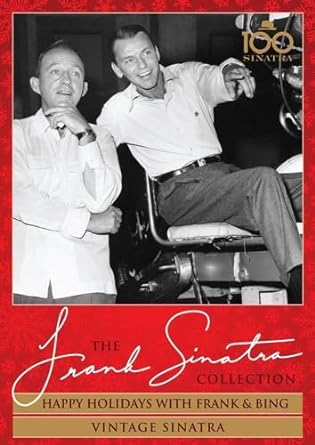


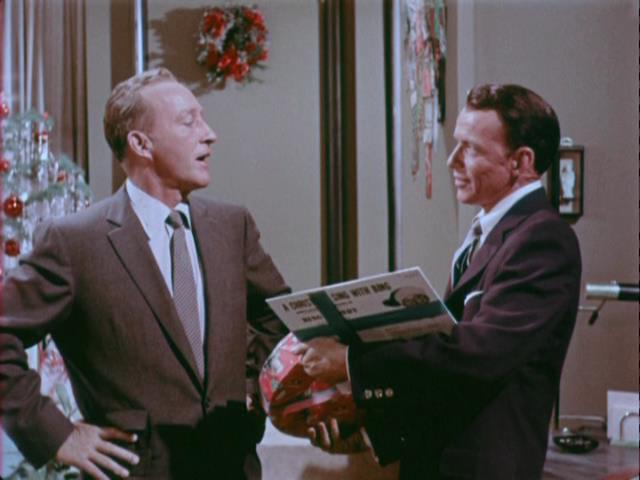
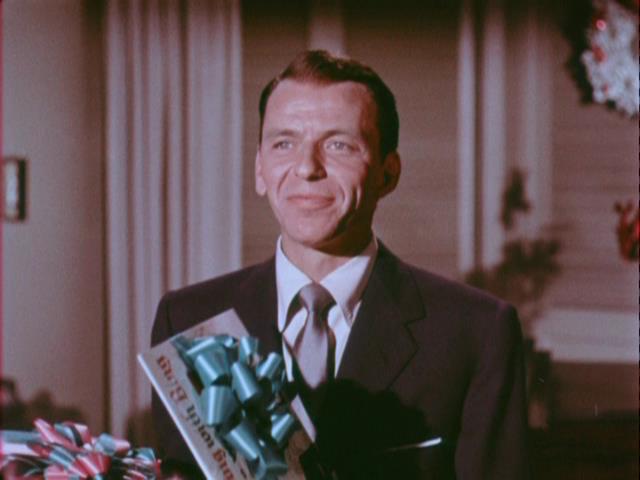
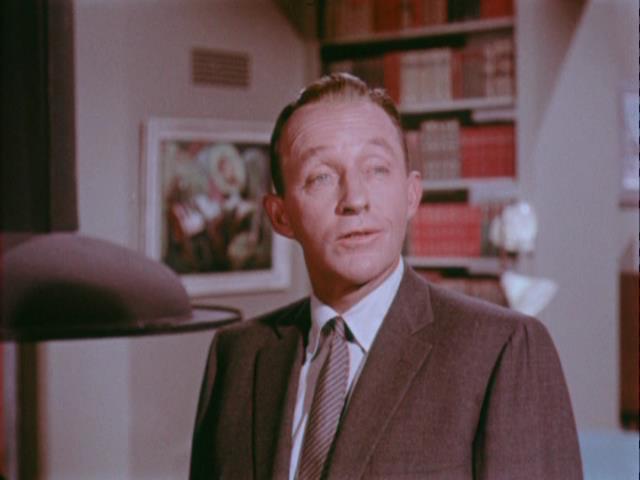
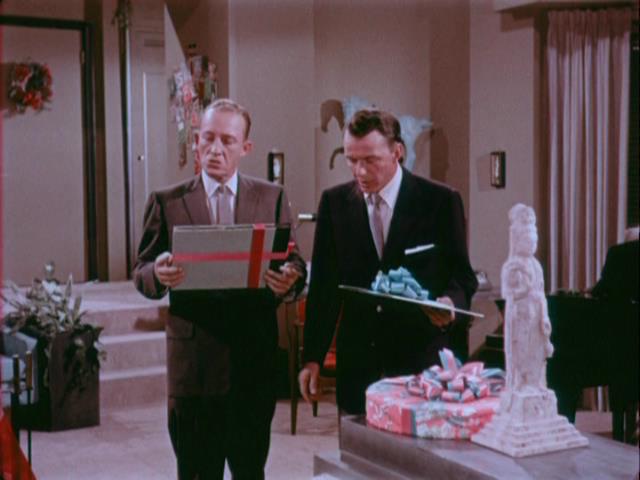
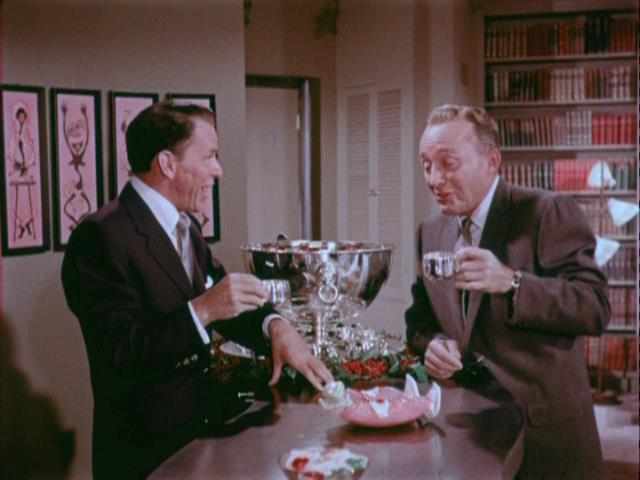
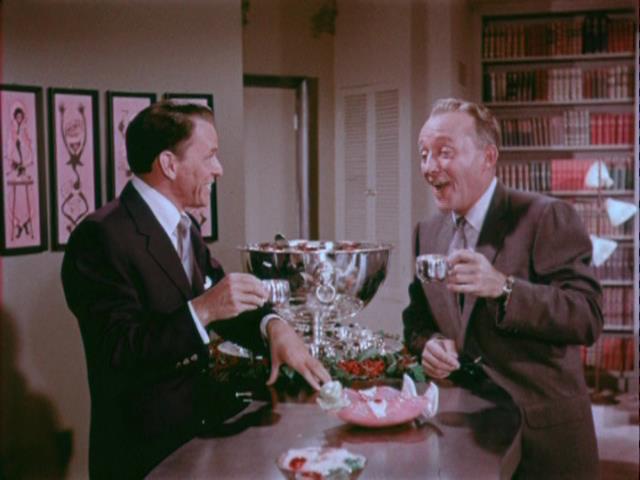

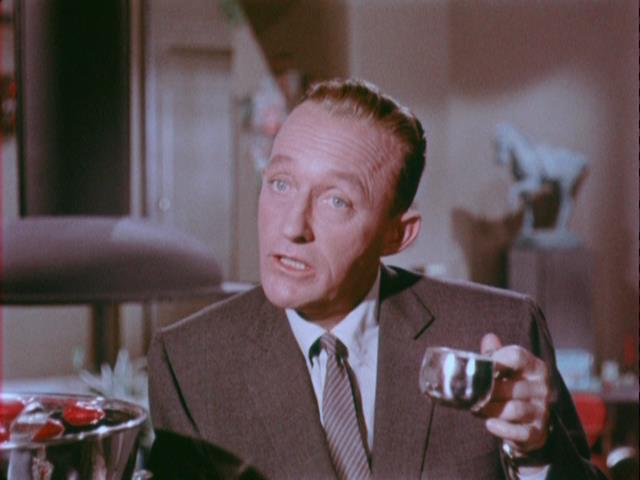
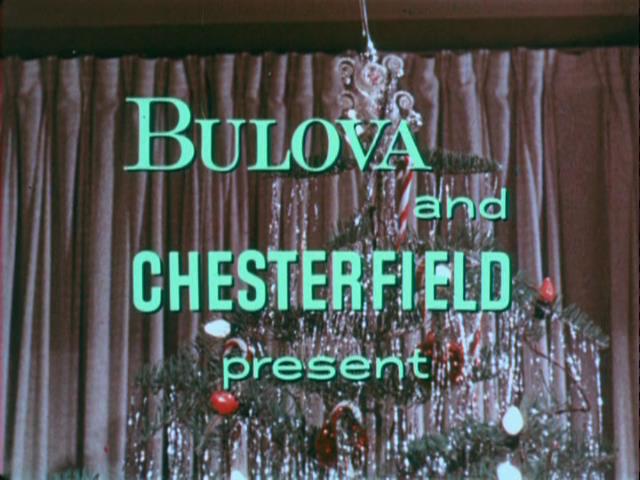
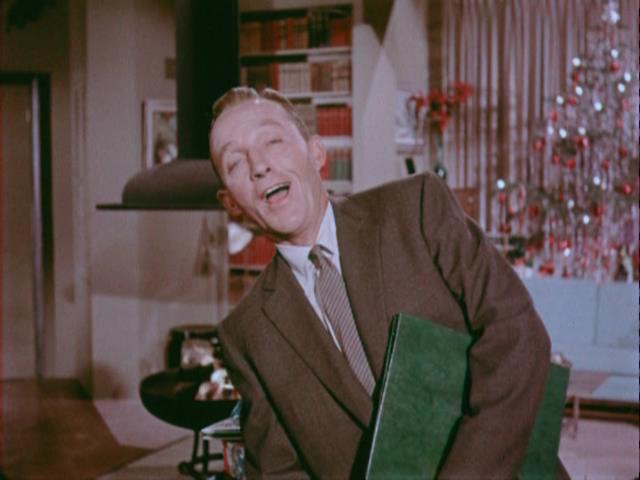
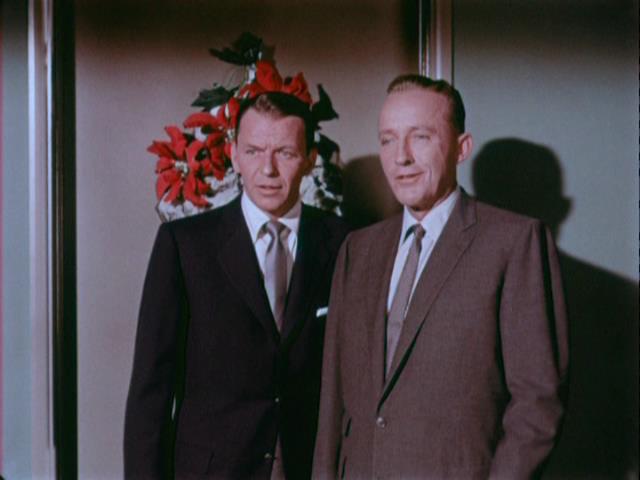
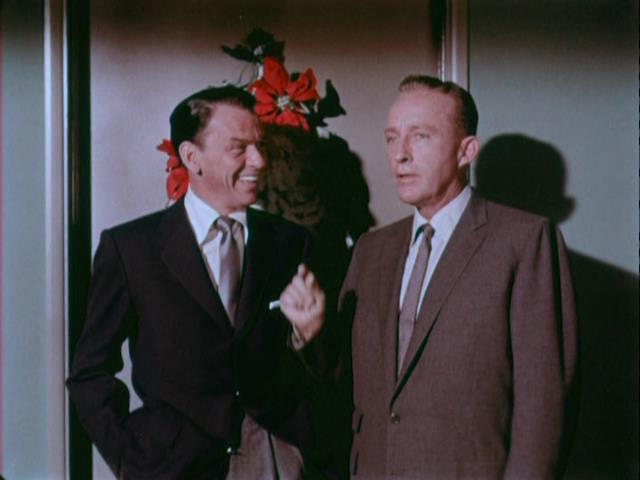
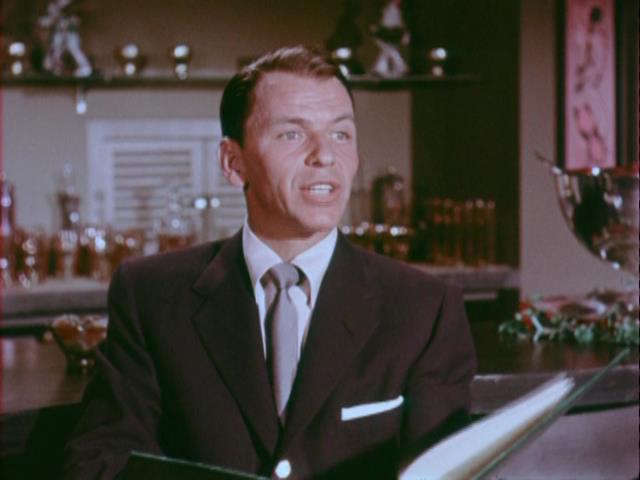
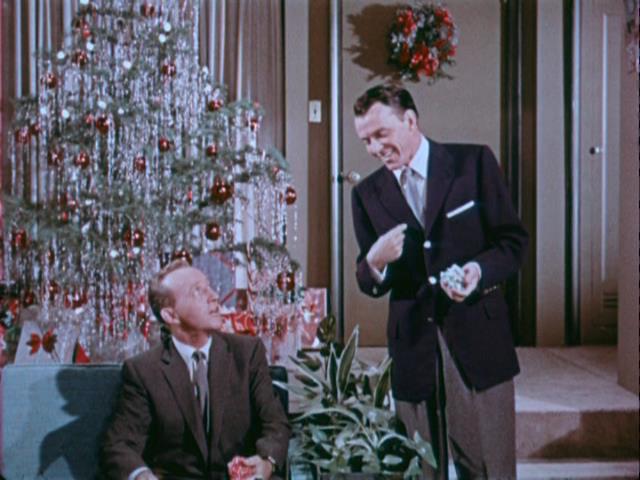

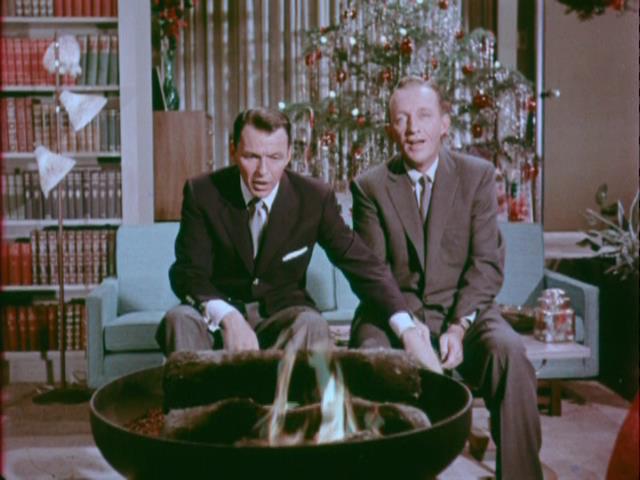
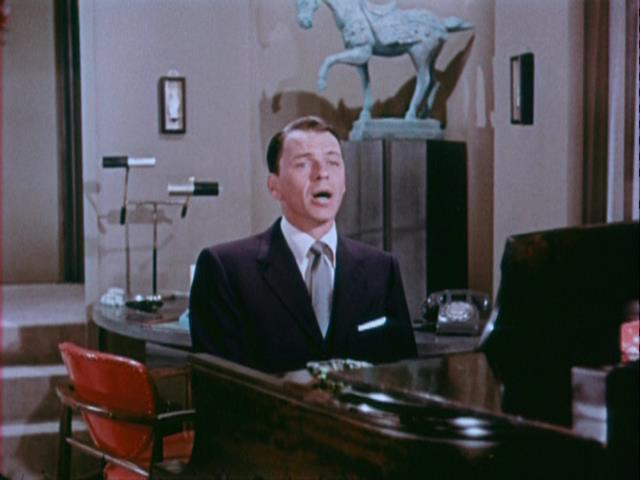
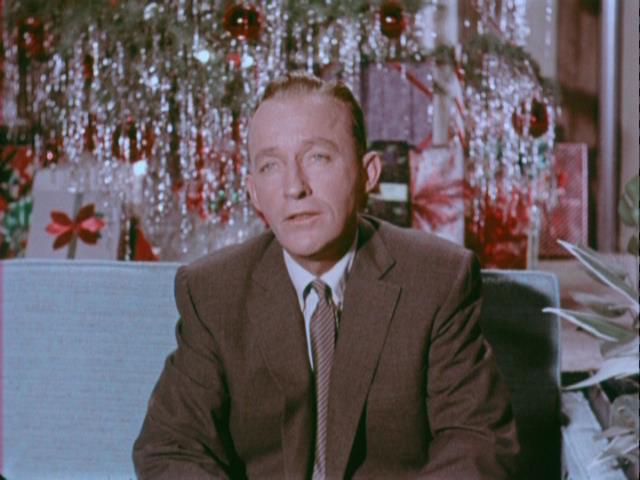

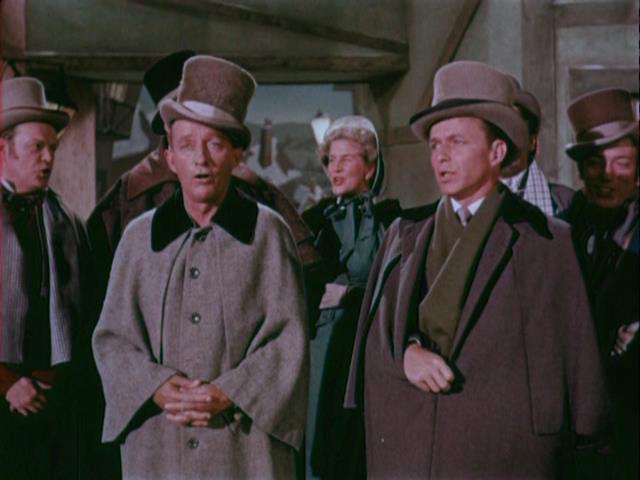
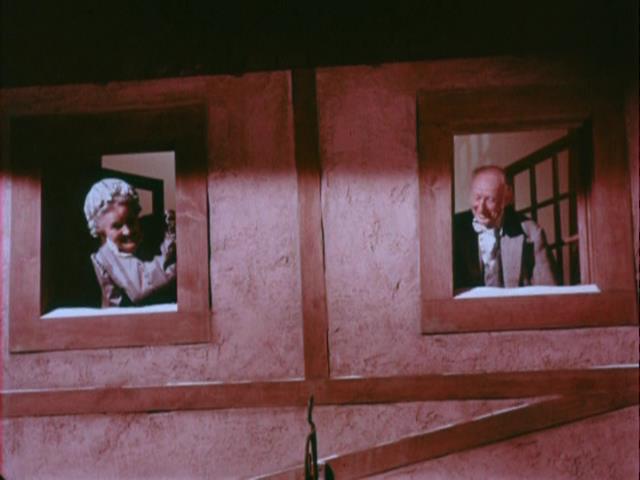
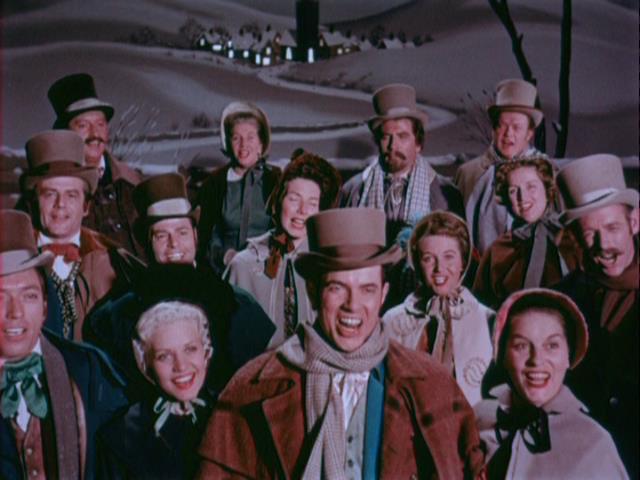


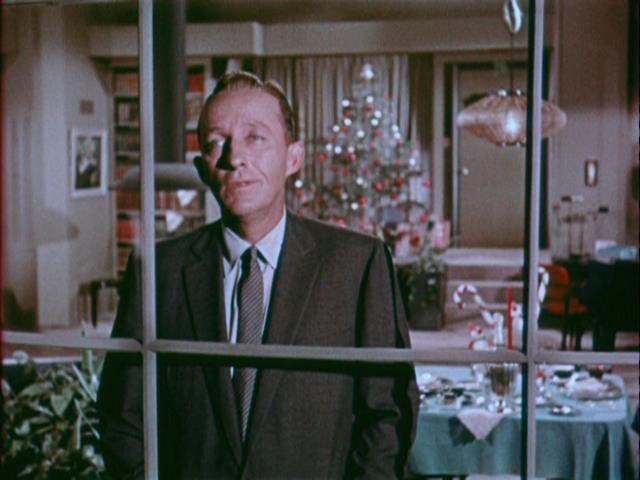
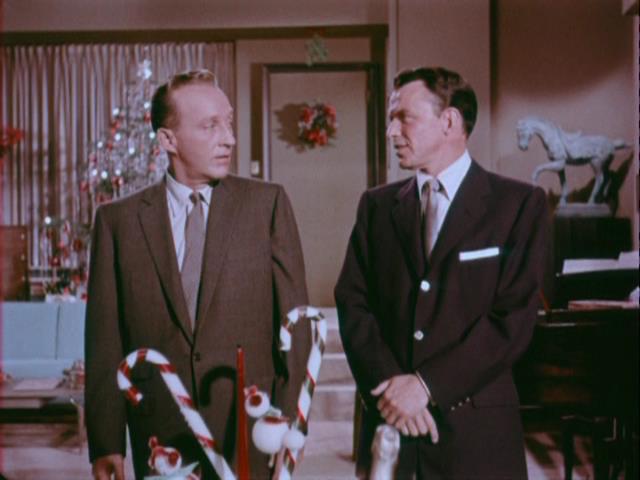
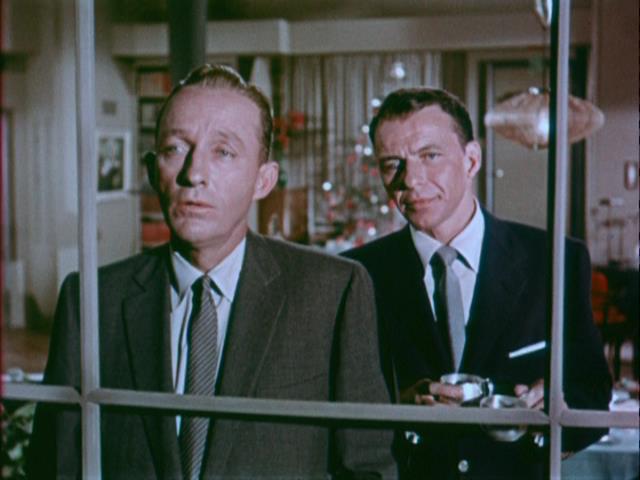
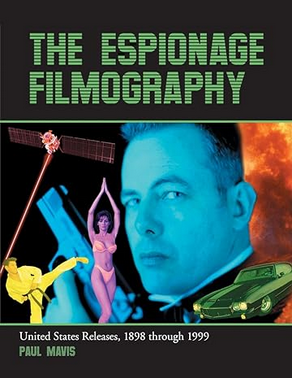
I don’t envy the makeup man who had to keep those famous hairpieces in place.
LikeLike
Nice.
LikeLike
One of the nice things about this special is you get to hear them harmonize in certain spots – something they almost never do on their own recordings.
And Bing’s line about Hedda Hopper – that had to be an ad-lib based on Sinatra’s reaction?
Merry Christmas
LikeLike
Agreed. That’s all this episode should have been: two chairs under a spotlight, and singing. And that line was great–Bing threw that stuff out routinely.
And Merry Christmas to you and yours!
LikeLike
I personally think watching anything with Frank Sinatra (or listening, for that matter) should be done in a wonderful state of inebriation. After all, wasn’t it Old Blue Eyes himself who said “I feel sorry for people who drink because when they get up in the morning, that’s as good as they’re going to feel all day.” Or something along those lines. 🙂 Hope you had a marvelous Christmas!
LikeLike
I did, thank you–I hope you did, as well!
LikeLike
“… for people who don’t drink… ” I believe he said
LikeLike
Paul, thanks for another terrific article–I agree wholeheartedly with your analysis. It’s one of my favorite Christmas shows, but it points out why Sinatra’s show didn’t make it.
I’m also glad you mentioned that line where Bing talks about how “that kind of singing will go on forever.” We’ve watched this show annually for many years, and that line leapt out from the very beginning. It’s almost heartbreaking, isn’t it? It’s as big a time capsule moment as you’ll see in a show like this.
Merry Christmas and Happy New Year!
Mitchell
LikeLike
I’m glad you enjoyed it, Mitchell. It is heartbreaking, isn’t it. There’s an absolute certainty, a conviction in Bing’s delivery of that line; for him, at that moment, there would have been nothing in the world that would have convinced him such songs would be eventually banished from so much of American life. The thought would have been ludicrous to him. It’s remarkable how much things have changed.
Merry Christmas and Happy New Year to you and yours, Mitchell!
LikeLike
Love this review, Paul. A show I watch every year, but never read such an in-depth analysis of it. Remarkable.
LikeLiked by 1 person
I’m so glad you enjoyed it. Thank you–have a great New Year!
LikeLike